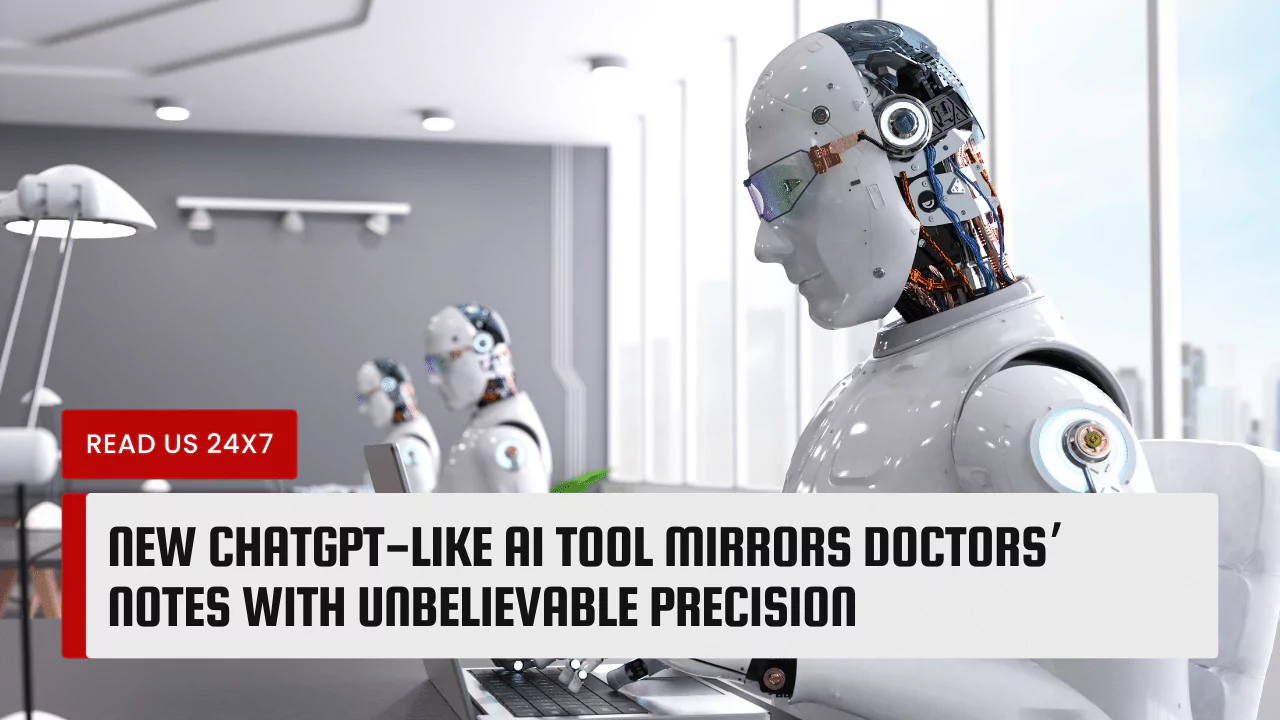Doctors’ notes are an essential part of medical documentation and communication, but they can also be time-consuming and tedious to write. What if there was an artificial intelligence (AI) tool that could generate doctors’ notes so accurately that even physicians could not tell the difference? This is not a hypothetical scenario, but a reality, according to a recent study that tested the performance of a new ChatGPT-like AI tool on medical records.
The Emergence of ChatGPT-like AI Tools
ChatGPT is a web-based chatbot and a generative AI application developed by OpenAI, a research laboratory based in San Francisco. It uses deep learning techniques to produce human-like responses to text-based inputs, based on a massive amount of data from the internet. ChatGPT can handle various queries and tasks, such as writing stories, lyrics, code, and even medical notes.
The new ChatGPT-like AI tool, called GatorTronGPT, is a specialized version of ChatGPT that was developed by a team of researchers from NVIDIA and the University of Florida. It was trained on the health medical records of two million patients while keeping 82 billion useful medical words. This enabled GatorTronGPT to write clinical text similar to doctors’ notes, with high accuracy and quality.
The potential for AI support in healthcare is immense, as it can help improve the efficiency and decision-making of healthcare professionals, as well as enhance the patient experience and outcomes. AI tools can assist in diagnosing diseases, designing treatment plans, predicting survival rates, and automating administrative tasks.
The Study on ChatGPT’s Ability to Mimic Doctors’ Notes
The study, published in the journal npj Digital Medicine, tested the ability of GatorTronGPT to generate doctors’ notes based on a new model, GPT-4, which is larger and more advanced than the previous version, GPT-3. The researchers compared the notes generated by GatorTronGPT with those written by actual medical doctors and asked two physicians to identify the correct author.
The results were astonishing, as the physicians were only able to correctly identify the author 49% of the time, which is no better than random guessing. This means that GatorTronGPT was able to mimic doctors’ notes so well that even physicians could not tell the difference. The researchers also found that GatorTronGPT’s notes were more comprehensive and informative than the human-written ones.
The study has significant implications for the healthcare industry, as it suggests that AI tools like GatorTronGPT can potentially replace or supplement the tedious task of documentation, and free up more time for doctors to focus on patient care. Moreover, AI tools can also provide more accurate and consistent information, which can improve the quality and safety of healthcare delivery.
Advantages and Disadvantages of ChatGPT as a Medical Tool
Using ChatGPT as a medical tool can have many advantages, such as:
- Enhanced efficiency and decision-making: ChatGPT can process large volumes of data and generate relevant information in a matter of seconds, which can help healthcare professionals make faster and better decisions, and reduce errors and delays.
- Improved patient experience and outcomes: ChatGPT can provide personalized and empathetic responses to patients, and answer their questions and concerns. ChatGPT can also help patients prepare for doctor visits, and provide them with useful resources and education.
- Reduced workload and stress: ChatGPT can automate and streamline many administrative and clinical tasks, such as scheduling, billing, ordering, and documentation, which can reduce the workload and stress of healthcare professionals, and improve their satisfaction and retention.
However, using ChatGPT as a medical tool can also have some disadvantages, such as:
- Safety and reliability issues: ChatGPT is not infallible, and it can sometimes produce inaccurate or inappropriate responses, especially if the input is vague or ambiguous. ChatGPT also relies on the quality and validity of the data it has been trained on, which can affect its performance and bias.
- Ethical and legal concerns: ChatGPT raises some ethical and legal questions, such as who is responsible for the outcomes and consequences of using ChatGPT, and how to protect the privacy and security of the data and information involved. ChatGPT also poses some challenges to the trust and relationship between healthcare professionals and patients, as well as the role and autonomy of human judgment and expertise.
Future Implications and Possibilities
ChatGPT is a powerful and versatile AI tool that can have a profound impact on the future of healthcare and medicine. Some of the possible implications and possibilities include:
- Use in diagnosing and treating mental health: ChatGPT can be used as a virtual therapist or counselor, providing emotional support and guidance to patients with mental health issues, such as depression, anxiety, and stress. ChatGPT can also help monitor and evaluate the mental health status and progress of patients, and recommend appropriate interventions and referrals.
- Potential for further advancements and improvements: ChatGPT is still a relatively new and evolving technology, and there is room for further advancements and improvements. For example, ChatGPT can be integrated with other AI tools, such as image and speech recognition, to enhance its capabilities and functions. ChatGPT can also be trained on more diverse and specialized data, to increase its accuracy and quality.


